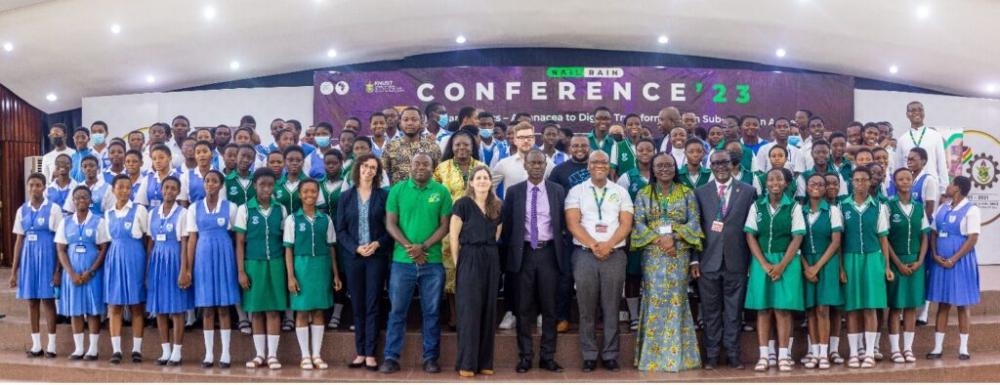The Responsible Artificial Intelligence Lab (RAIL) and the Responsible Artificial Intelligence Network (RAIN) Africa jointly organized a historic 2-day responsible AI and ethics conference on the theme “Responsible AI and Ethics – A Panacea to Digital Transformation in Sub-Saharan Africa” on 13th and 14th March 2023 at the Great Hall, KNUST. The RAIL and RAIN Conference discussed AI in Healthcare, AI and Human Rights, AI applications, and the Role of Afrocentric Datasets in promoting Responsible AI in Africa.
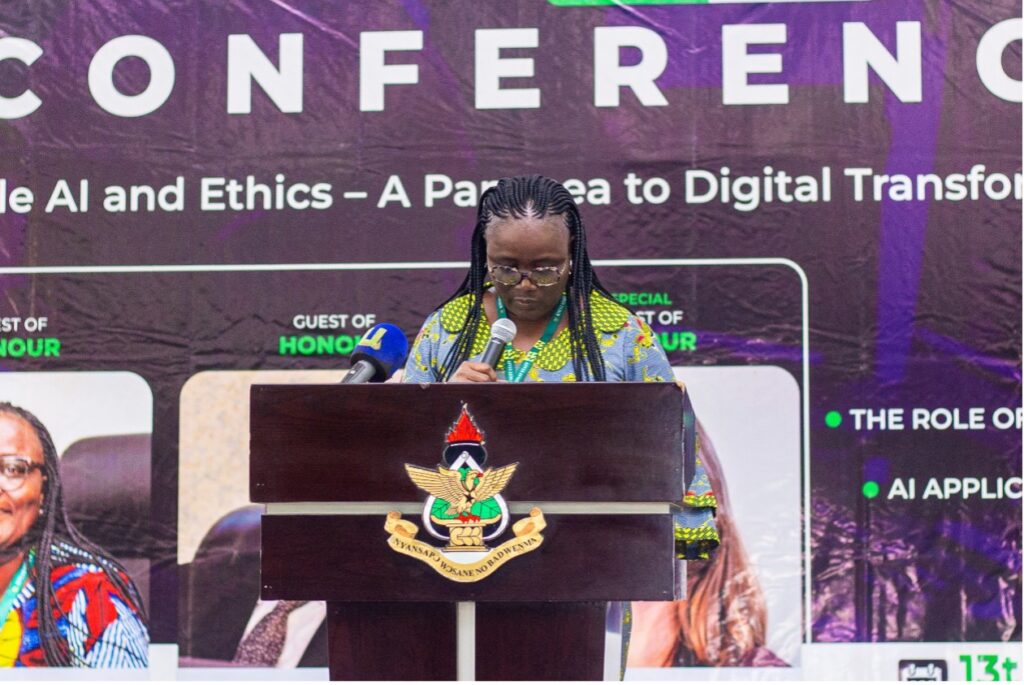
In her welcome address, Prof. Rita Akosua Dickson, Vice-Chancellor, KNUST, said digital development tools are the key enablers to drive economic transformation and urged institutions of higher learning in the sub-region to focus on programmes directed at equipping the next generation of graduates with the requisite tools to lead the digital revolution. She said Artificial Intelligence holds much promise and is seen as a game changer in transforming the digital economy. She added that AI solutions must be developed and deployed responsibly. “Within this context, I find the theme for this conference, “Responsible AI and Ethics – A Panacea to Digital Transformation in Sub-Saharan Africa most appropriate. The rights and privileges of the human person must not be trampled upon in deploying AI solutions; additionally, datasets based on which models are trained should not be biased,” she intimated.
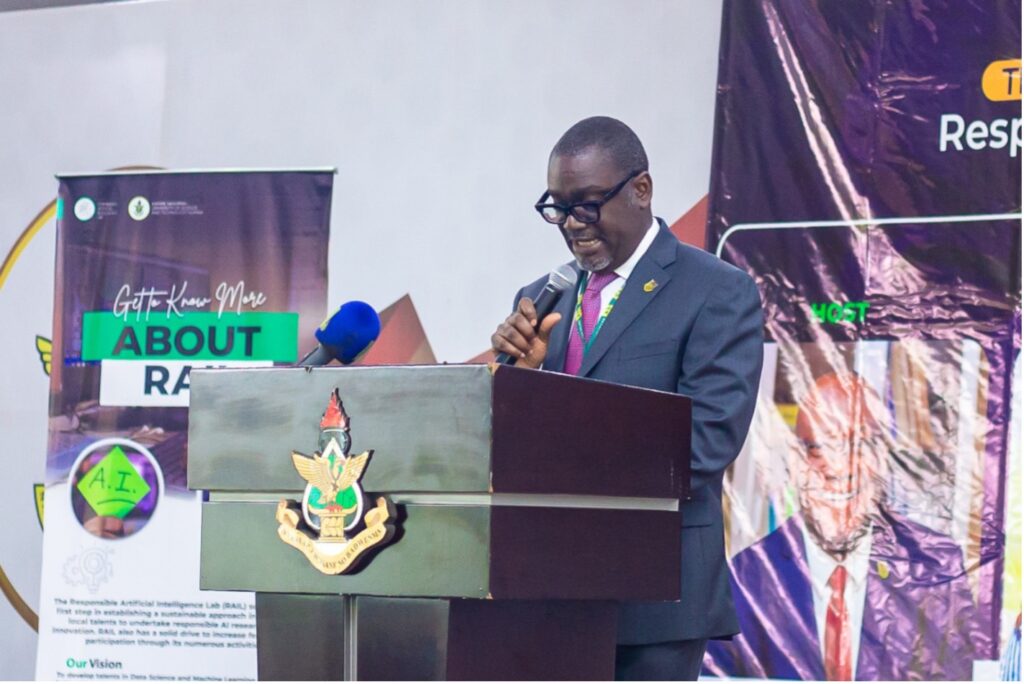
In his opening remarks, Prof. Kwabena Biritwum Nyarko, Provost of the College of Engineering, said the theme for the conference, “Responsible AI and Ethics – A Panacea to Digital Transformation in Sub-Saharan Africa, is relevant and timely because AI is transforming the way we live and work and we are only beginning to scratch the surface of the potential of AI. He said AI is making significant strides in various fields and is expected to transform many industries in the coming years. Due to that, the challenges of AI in data privacy, bias, and ethical concerns must be addressed, he stated. He said the College of Engineering is committed to ensuring the success of RAIN and RAIL activities. “A clear demonstration is KNUST College of Engineering hosting the first RAIL and RAIN Conference,” he added.
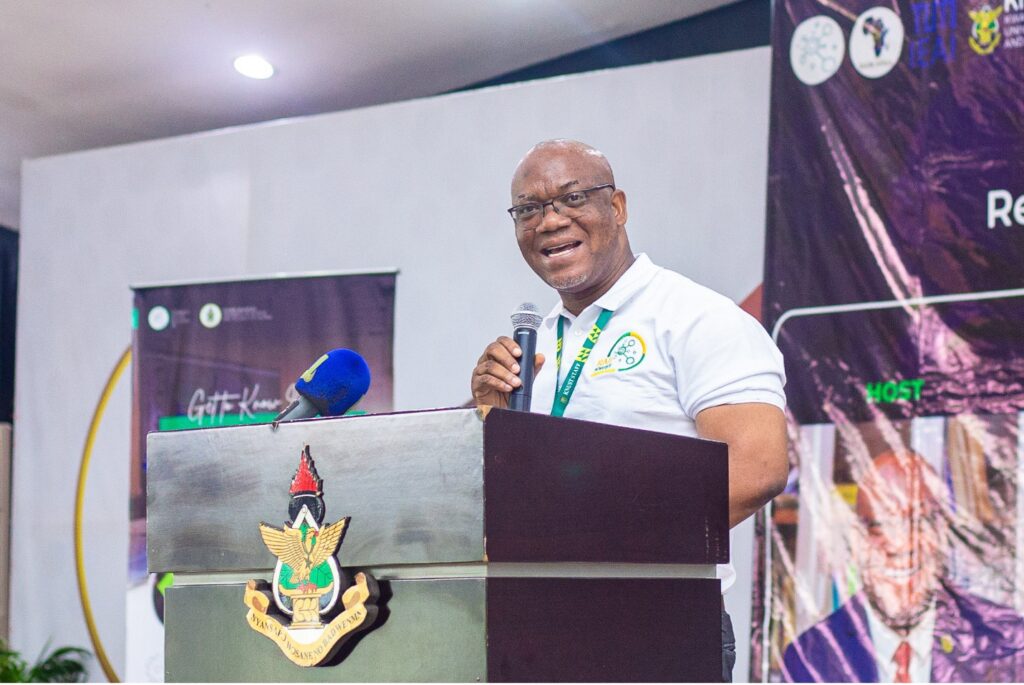
Prof. Jerry John Kponyo, Principal Investigator and Scientific Director, RAIL and Cofounder, RAIN Africa, said the RAIL and RAIN Conference is the fruit of five years of collaboration between the Faculty of Electrical and Computer Engineering, College of Engineering KNUST, and the Institute of Ethics in Artificial Intelligence (IEAI), Technical University of Munich (TUM), Germany.
“Like the biblical mustard seed, what began as a collaboration between two institutions to serve as a voice of advocacy for the responsible use of Artificial Intelligence has grown to become a robust network of at least thirteen Universities and organizations in the sub-region,” he said. He mentioned that through the experience drawn from working in RAIN, the KNUST team, through funding from IDRC and GIZ, set up a Responsible Artificial Intelligence Lab (RAIL) to serve as a vehicle for building capacity in the responsible use of AI in the sub-region and the Lab has satellite labs in Senegal and Cape Verde and supporting labs in Germany.
“The future belongs to those who can find their way in the digital space; for this reason, RAIL has taken the initiative of working with Senior High Schools within the sub-region to build capacity in robotics by setting up robotics clubs with the intention of providing the needed support for those who will want to consider STEM as a career,” he added. He appreciated the Vice-Chancellor, the entire KNUST management, and the College of Engineering for enabling this collaboration to thrive.
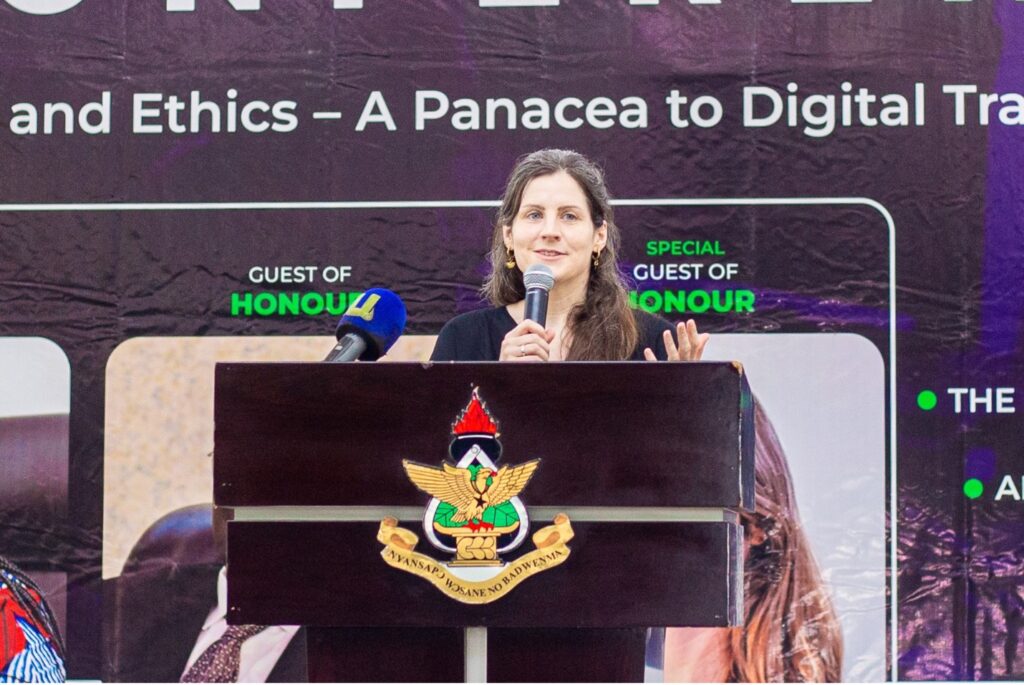
Dr. Caitlin Corrigan, Executive Director, IEAI/TUM, Germany, and Co-founder of RAIN Africa, said RAIN Africa aims to promote the responsible adaption and use of AI in Sub-Saharan Africa. She stated that the network brings experts from academia, industry, and policymakers to address the challenges in the sub-region. “RAIN Africa enables researchers, implementers, and innovators to collaborate, co-develop, and implement joint projects,” she said. She added that the network supports and coordinates interdisciplinary research and partners with universities worldwide, non-profit organizations, and technological companies. She said IEAI had worked closely with RAIL, and she is pleased to see this collaboration grow in many more years to come.
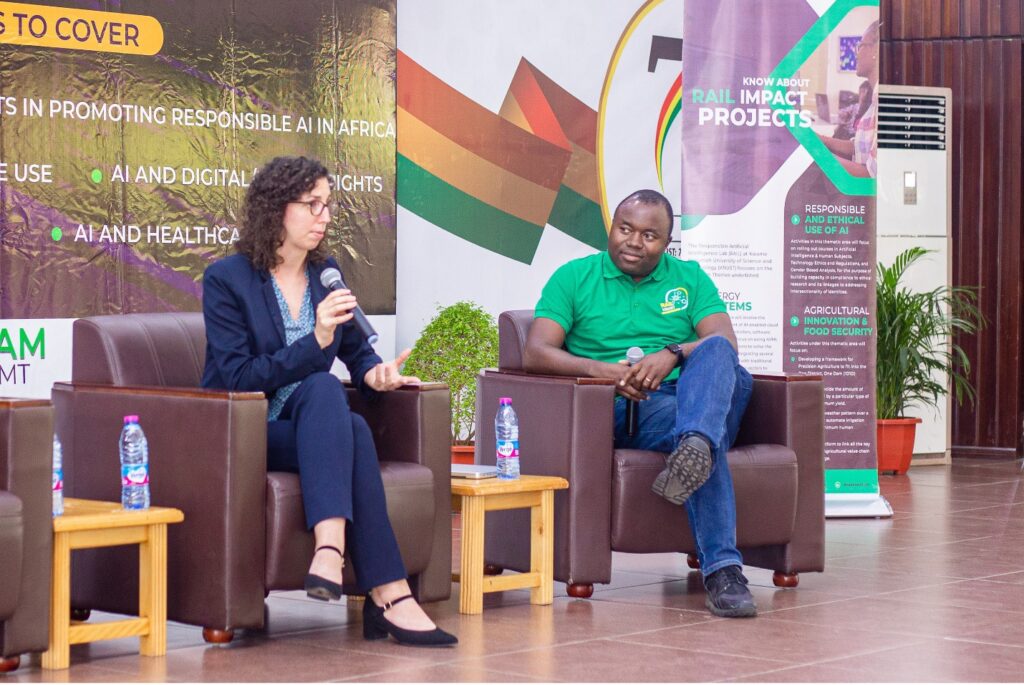
A panel discussion on the approaches to promote responsible AI in Africa was held with Dr. Henry Nunoo-Mensah, Programmes Coordinator, RAIL, Nadine Dammaschk, GIZ FAIR FORWARD, Germany, and Dr. Attlee Gamundani, RAIN, Namibia.
Presentations boarded around; the normative issues of AI from a business and human rights perspective, AI ethics, Machine learning for identifying teenage patients at risk of gestation hypertension, the role of “Afrocentric” datasets in promoting Responsible AI in Africa, AI ethics in finance among other related topics. RAIN and RAIL resolved to collaborate in building Afrocentric Datasets for the use of AI practitioners as well as building local talent in the subregion to engage in responsible, multi-disciplinary AI research and innovation for development.
Source: College of Engineering (CoE)

